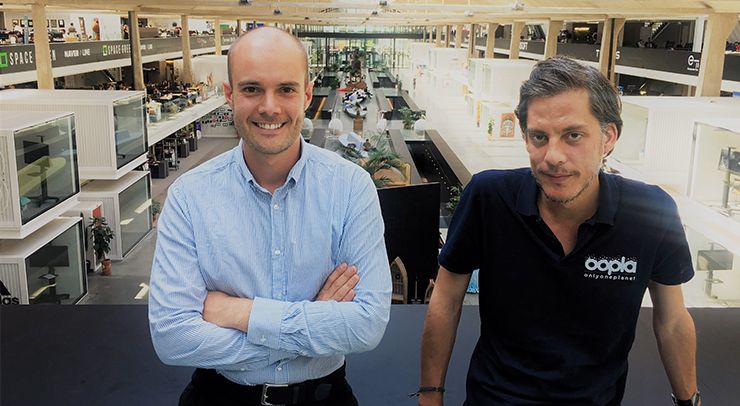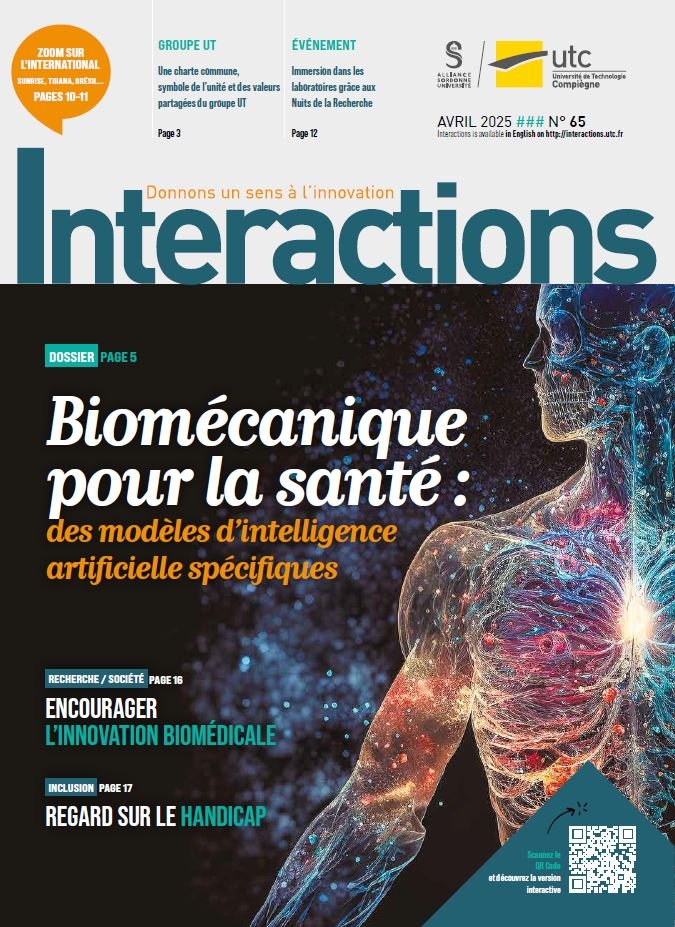A new look on the ecological transition you see round the corner

How can we all take actions in a simple way to reduce our ecological impact? Everyone can do small things that make a big difference. One example is the start-up company OOPLA, cofounded by Thibaut Aaron, a native of Amiens, who started his crusade in June 2018. This company specialises in reducing our environmental footprint. OOPLA, for Only One Planet, designs and distributes solutions designed to accelerate the ecological transition by reducing our consumption of resources.
A start-up specialist in reducing the environmental footprint has been installed for more than a year at Station F, the world’s largest start-up campus, in order to accelerate the deployment of its solutions reconciling ecology and economy. The first solution, offered at the general public price of 25 € including tax and available at suroopla.fr, allows you to reduce your water consumption by limiting the waste of this resource. The water kit already distributed in more than 5 000 copies is designed to be delivered directly to the letterbox, saves up to 50 000 litres of water/year and €280 per year for a two-person household. “With an average water consumption of 150 litres per French person per day and more and more droughts, taking action is becoming a priority,” says Thibaut Aaron, one of the six founding partners. OOPLA has launched its crusade by demonstrating that acting for the planet can be economically profitable. By tackling the waste of resources, the young start-up also offers a laundry kit and ecological boxes on the themes of energy and waste, including the tooth box containing three Moso bamboo toothbrushes and a solid natural toothpaste with menthol crystals, rated 100/100 on Yuka. The aim is to enable everyone to reduce their environmental impact while saving money. In total, more than 11 000 kits have already been sold.
A solidary, social enterprise
Anxious to integrate a social aspect to its activity, OOPLA spontaneously turned to ESAT Les Papillons Blancs, Soissons to assemble its kits. “They are the real heroes! They are particularly conscientious and do a great job,” says Thibaut Aaron, who undertakes for each box sold, to plant a tree in a developing country affected by deforestation. At the age of 29, Thibaut Aaron already has an excellent track record in terms of environmental protection. A graduate with an M2 in political science, risk management and a master’s degree in international and European law, Thibaut Aaron is so motivated by his desire to do something for the planet that he does not hesitate to write to the President of the Republic, to share his convictions. “I have also contacted the French Ministry of Ecology and I was able to join, in parallel with my studies, the cabinet of the Élysée with t wo of François Hollande’s advisers on environmental and energy issues. My office was very close to Nicolas Hulot’s office. My role, notably, was to participate in the interministerial committees, to prepare reports on energy and transport to help in decision-making on issues such as the energy transition law, the law for the recovery of biodiversity and the delicate SNCM dossier. I have to admit that there are a lot of fantasies around this place of power, which for me remains a simple environment where substantive subjects can be dealt with,” Thibaut Aaron reveals. At the end of his work-study contract at the Élysée Palace, he joined the Enedis company, at La Défense, in the sustainable development department until November 2016, to prepare COP21. These are two wonderful and enriching experiences that the Amiens region has decided to put to good use in its own adventure.
Around the world of energy transition
Thibaut Aaron is also the founder of Climaction, a volunteer mission to promote energy transition and the circular economy around the world. Indeed, in 2017, he began the Energy Transition Tour. “The idea of the Energy Transition Tour was to convey positive, guiltfree messages to the population. We are young and all of us fell very young into the digital age. With the power of social networks we can do more with less. We still expect a lot from the State in terms of the environment, yet it is a very difficult task. It is the superimposition of everyone’s actions on a daily basis that will change the situation. We were able to make on the spot journalism solutions with pedagogical workshops for the youngest, schoolchildren and students and photo and video reports of all the initiatives we discovered in Madagascar, Senegal and the African continent.»




